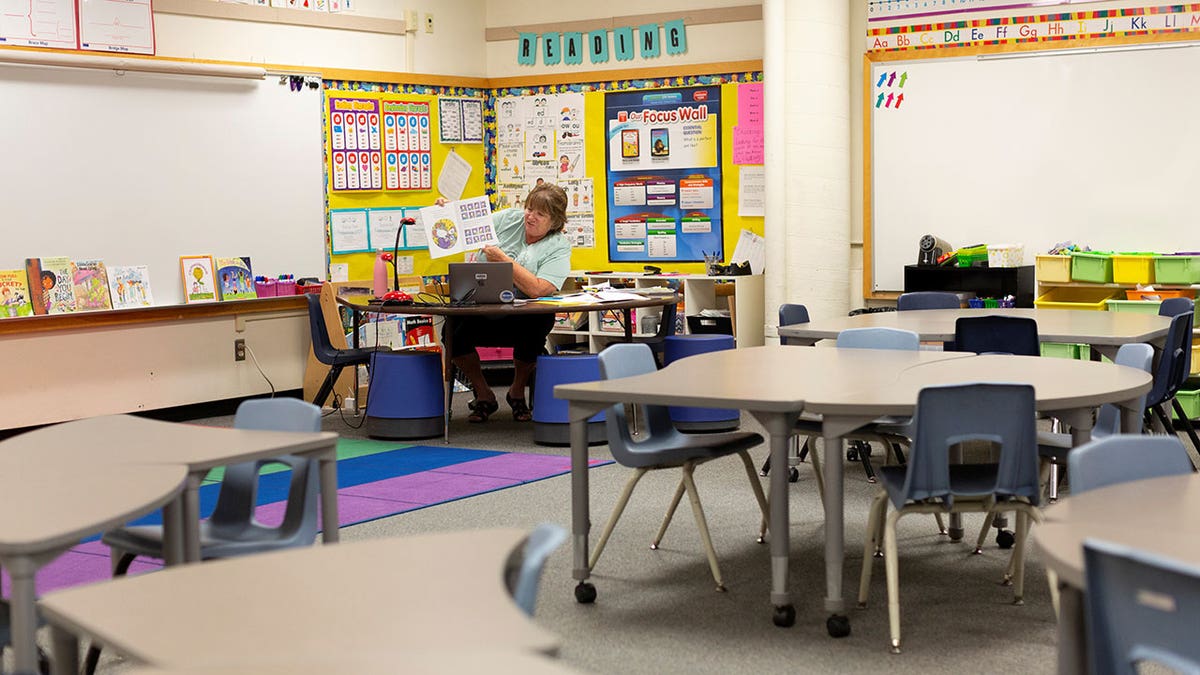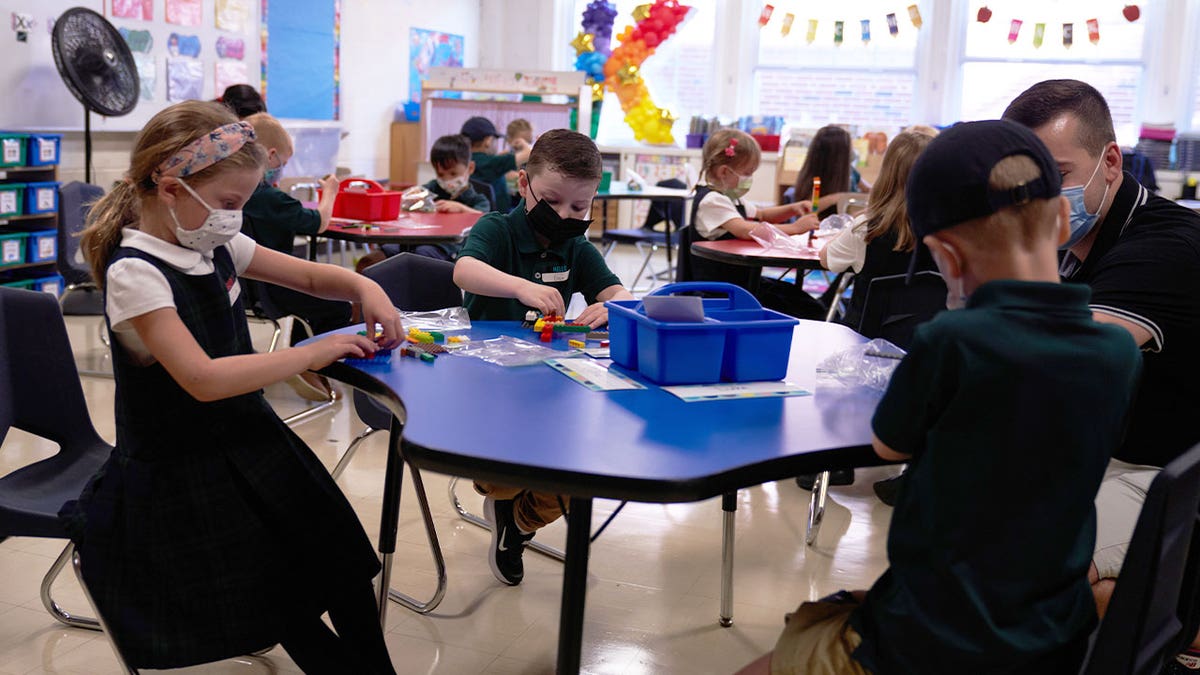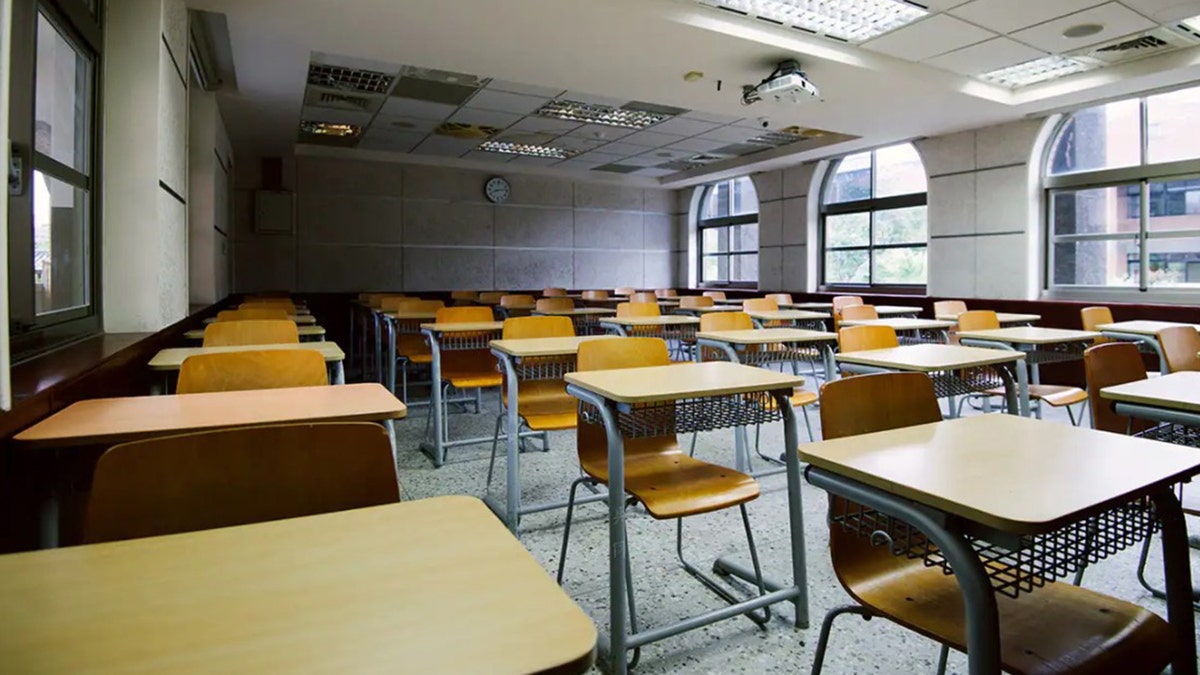Back-to-school: Tips for keeping tabs on your child's mental health
SonderMind chief medical officer Dr. Douglas Newton, based in Denver, Colorado, shares expert advice for how to check in with your kids upon their return to school.
Parents reacted negatively to a New York Times podcast claiming that people were "caught off guard" by the current mental health crisis among teenagers, considering how isolated many young people were during the COVID-19 pandemic.
"Teenagers in the U.S. are experiencing a mental health crisis," the New York Times tweet with a link to the "The Daily" episode read. "Why has the issue become so widespread, and why have many people been caught off guard?"
Podcast host Michael Barbaro noted at the top of the program how the mental health crisis has especially throughout the pandemic "become a lot more visible to people, which is that kids, and especially teenagers, in the United States are in the throes of a mental health crisis." But the show did not touch upon how COVID-related school closures were found to have exacerbated mental health issues among young people, according to studies.
SCHOOL MENTAL HEALTH CRISIS: 70% SEE RISE IN STUDENTS SEEKING TREATMENT SINCE COVID-19 BEGAN: STUDY
The Fairfax County Parents Association in Virginia cried foul at the apparent omission, as well as the wording of the tweet.
"Parents weren't caught off guard; we have been warning about school closures causing irreparable harm since June 2020," the group tweeted. "Finally @nytimes is catching up; they can help educate the leaders of school systems who are still in denial that learning loss and development delays are real."
The Fairfax parent group expressed "frustration" on the overall issue, arguing that, until recently, it had been largely ignored by government officials and the media.
"Parents, by June of 2020, were already sounding the alarms about the damage being done to the mental, emotional, social, and academic health of their growing children," the group told Fox News Digital. "Repeatedly, parent groups like ours reached out to school board members and school system administrators saying that the negative impacts of prolonged school closures would dramatically outweigh any impact COVID could have. School systems like ours made the decision to sacrifice the kids to the panic of adults, when up until that moment society had generally agreed that when a crisis occurs it is the responsibility of the adults in society to put the best interests of children first."
The Times published guest essays sounding off on school closures, including, "We Learned Our Lesson Last Year: Do Not Close Schools," from Dr. Joseph G. Allen, an associate professor and director of the Healthy Buildings program at Harvard T.H. Chan School of Public Health. And a New York Times newsletter in May broke down the negative effects of school closures and concluded that, "Remote learning was a failure."
But critics blasted the outlet for appearing last year to gush over American Federation of Teachers President Randi Weingarten as a champion of school openings, despite her union often appearing to slow walk the reopening of schools.
The piece, from Times columnist Michelle Goldberg, was initially headlined "Can This Woman Save American Public Education?" It was changed to "What Will It Take to Get Schools Back to Normal?" before The Times settled on "We Desperately Need Schools to Get Back to Normal." The story appeared on the front page of the Sunday Review of the Times, which included the subhead, "The pandemic has left teachers, parents, and students in a crisis. Randi Weingarten may have a way out."

Ellen Phillips virtually teaches a second grade class for students who are either at home or in a separate classroom as in-person learning resumes with restrictions in place to prevent the spread of coronavirus disease (COVID-19) at Rover Elementary School in Tempe, Arizona, U.S., August 17, 2020. REUTERS/Cheney Orr (REUTERS/Cheney Orr)
"We are still slack-jawed at the absolute abdication of the bulk of journalists and the media, who for over a year, also ignored every outreach from parent groups begging for someone to talk about what was happening before our eyes to our kids and the kids in our community," the Fairfax County Parents Association said of the media's COVID coverage.
"We repeatedly pleaded with media outlets to talk about the importance of the mental and emotional health of kids as they were repeatedly shoved to the side in favor of whatever the teachers unions wanted that day," they continued. "Parents learned quickly that the media no longer researches and investigates stories to expose what is happening--they instead pick and choose to cover only things that fit their pre-established and preferred narrative. So, without question, the idea that any entity would talk about the mental and emotional health problems of our nation's children while ignoring the crime perpetuated against those children for so long, is a sad joke."
"We are watching with great interest as institutions and media outlets rush to pretend they shared these concerns all along," they said.
Others, like Fox News contributor Karol Markowicz, responded to the podcast by sarcastically asking what could have "possibly" caused the crisis.
"The NY Times is never going to face the damage they helped perpetuate by keeping schools closed," Markowicz told Fox News Digital. "They’ll just keep writing the same stories about the great mystery of why kids and teens are so damaged right now. I hope they get to the bottom of it by the next pandemic."
"You can only be caught off-guard if you haven’t been paying attention," Bethany Mandel, a homeschooling mother of five, likewise told Fox News Digital. "There are any number of reasons why kids aren’t doing well, and a great many of them are related to the amount of time they spend on screens. After all of COVID, when we told them all of their social interactions had to take place virtually, there is no way we can feign surprise at the effects of how we forced them to weather the pandemic."

Joseph G. Allen feels masks work, but aren’t necessary for kids. ( Allison Dinner/Bloomberg via Getty Images)
Still more critics suggested the Times and other media should be held somewhat accountable.

Empty classroom or lecture hall (iStock)
CLICK HERE TO GET THE FOX NEWS APP
Data released in June found that 76% of public schools saw an increase in staff concerns regarding students' mental health.
More than three-quarters (76%) of public schools reported an increase in concerns from staff regarding their students' depression, anxiety and trauma since the coronavirus pandemic began, according to data collected between April 12 and April 25 by the National Center for Education Statistics (NCES) within the U.S. Department of Education's Institute of Education Sciences (IES).





















